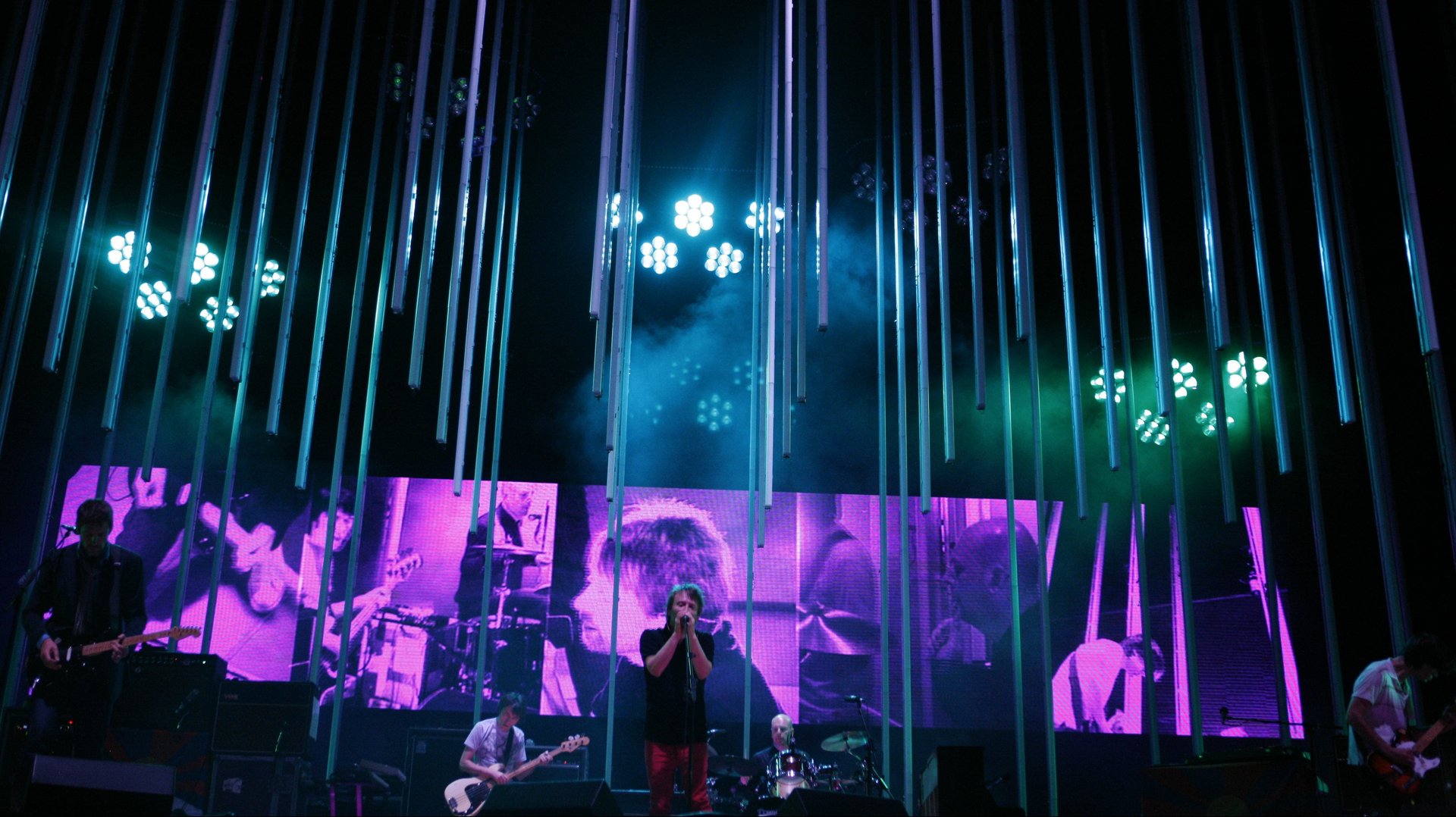Radiohead’s “OK Computer” unexpectedly set me on the path to meet my wife
My wife and I sometimes joke that OK Computer is the reason we met.


My wife and I sometimes joke that OK Computer is the reason we met.
I first heard the album in 1998, the year after Radiohead released it. I was 17 and making the deep connections to music that become more difficult, maybe impossible, to repeat as we age. At the time, I listened to almost nothing but punk rock. As far as I was concerned, The Ramones had proved that three power chords were all you needed to write a song.
That is, until I found myself at a party late one weekend night, and someone put on OK Computer. I wasn’t sure if I liked it, but something connected.
On March 30, Radiohead got its long-expected induction to the Rock & Roll Hall of Fame, in a ceremony that will be broadcast on HBO tonight (April 27). It’s fair to say OK Computer was the album that made the honor a foregone conclusion. It’s the album that established Radiohead’s greatness, and for more than 20 years has prompted fans to talk about the British rock band in almost messianic terms.
Its legacy rests on the way it broke clear from a lot of old notions about how guitar-driven music should sound, creating something original even as it nodded back to bands such as The Pixies, The Beatles, and Pink Floyd. It took the tired clichés of overworked rock music—guitar solos, choral arrangements, string sections—and found new ways to unsettle them.

By then I had heard songs from their previous releases, like “Creep” (their big first radio hit) and “Fake Plastic Trees,” but they didn’t sound nearly so unusual. I think that’s what connected for me on that first listen, sitting on a couch at a party, and what coincidentally set me on a course that would introduce me to my wife years later.
For me, one of the most memorable parts of the album’s epic, “Paranoid Android,” comes about six minutes into the song, when it kicks from the melancholic, descending middle back into the aggressive finale, centered on a distorted, slashing guitar line played by Jonny Greenwood. The line is fresh on its own, but then at one point, just after the six-minute mark, the guitar dissolves into a sound like a machine malfunctioning. It’s a perfect moment to heighten the effect of the song, which is anxious and uneasy throughout, largely through the way it incorporates notes outside its scale.
The effect at the end of “Karma Police” is similar. It starts anchored by the acoustic guitar and piano, while its chord progression isn’t too far off from The Beatles’ “Sexy Sadie.” It’s almost folksy, except Phil Selway’s methodical drumming, combined with singer Thom Yorke’s vocals, weary to the point of indifference, give it an uneasy tension. And then it abruptly switches gears. “From the middle section to the outro, it’s a completely different technique of building up a song,” producer Nigel Godrich told Rolling Stone for its oral history of the album. “It’s not like the band playing. It’s just samples and loops and his sort of thing over the top, which sort of was the forerunner of a lot of things to come, good or bad.” The hypnotic buzzing sound that rises up in the song’s coda is the effect of guitarist Ed O’Brien distorting his guitar by overloading a digital delay processor and turning down the knob that controls the rate of delay.
Weirdly, these guitar effects, which have spawned sites dedicated to dissecting them, are what first convinced me to buy a guitar. I realized that the instrument could be expressive in ways I hadn’t thought of before. Over time, as I picked apart the album on repeat listens, there were so many other things that made me love the way the band treated music: sounds I couldn’t identify; the odd time signatures, like the tinkling guitar on “Let Down”; the samplers and Mellotron; the unexpected guitar riffs and clever use of pedal tones, which hold certain notes while the rest of the chord pivots around them. (“Yeah, that’s my only trick,” Yorke said in a 2001 interview with The New Yorker.)
I kept teaching myself the guitar through college, and that’s what eventually led me to my wife. I was never a great guitar player (I’m still not), but by the time I graduated with a degree in journalism, I was more or less proficient. For a couple years, I worked a tedious job that had little to do with the schooling I’d received, until a friend from college told me he was starting a band. I joined up as the bass player. (They didn’t need a musician, just someone to mostly play root notes.) The other guitar player in the band happened to work at a weekly news magazine, and when he heard I had a journalism degree and had interned at a respected magazine, he offered to put me in touch with his boss. They had an opening.
A few months after hiring me, the magazine hired the woman I would eventually marry. We sat in cubicles beside each other, and over many long hours in the office, we became friends. Then we discovered, to our mutual surprise, that we were in love.
Looking back, I can see a line through to that moment. It starts with me at 17, hearing a record that would convince me to get a guitar. At the other end is us.
I still listen to OK Computer. The band’s output since about 2003 hasn’t been for me, but my attachment to what Radiohead did before that hasn’t waned. It’s hard to say how much of the connection to that music is about personal emotions, versus an objective reckoning of it. Maybe it doesn’t matter.
Millions of people feel connected, in millions of ways, to the songs Radiohead wrote and performed. That’s why the band is in the Rock & Roll Hall of Fame.